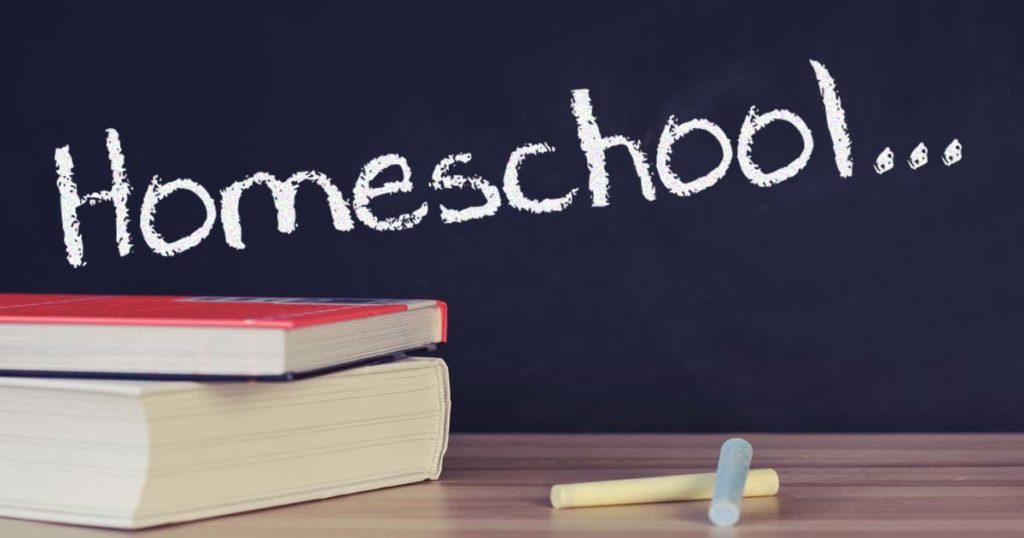How to Homeschool When You Live Off-Grid

If you are dreaming of one day living off-grid, there are many things you must consider before pulling the plug. One such consideration should be how you are going to educate your children. While some families choose to send their children to local public or private schools, others prefer to homeschool. Although I, Matthew Davies, do not consider myself an education expert, I nevertheless have some tips and tricks from my own experience that can make things easier for you and your family if you decide to take the homeschool route.
Learn the Law
While it is true that homeschooling has become a more popular option, and therefore more widely accepted, homeschool parents may still be viewed very suspiciously by some. Be aware that by adding the homeschooling stigma to that of the off-grid and homesteading lifestyle, you may be subjecting your family to unfair scrutiny. Trust me when I tell you, with all the other things you are going to be dealing with, you will not have time to answer a lot of questions from school officials, social services, or busybodies.
So, the best defense to all of the above concerns is to make sure you are within the law. Before deciding to tackle homeschooling, you need to make sure you are not subjecting yourself to legal sanctions.
Homeschool regulations vary from country to country, state to state, province to province, and even region to region. Some places have strict rules on when, where, and how you are to educate your children. Other areas are entirely hands-off.
If you are reading this from the United States, you can look at this handy map on the Homeschool Legal Defense Association website. It will give you a general idea of how your state regulates homeschooling. Also, be sure to check with the local agency that oversees homeschooling in your area to confirm that there are no local homeschooling laws in place in your town or region.
Learn to Teach
Homeschooling doesn’t require parents to go out and earn a teaching degree. However, there are many classes that you can take for free both in major cities and on the internet. These classes will provide you with an excellent background for teaching your children in every classroom subject.
Additionally, I strongly encourage you to avoid writing your own curriculums. Several resources provide curriculums for homeschool parents that follow the state education guidelines . Start by checking with your local bookstore or library for homeschooling curriculums. The best resources will include lesson plans, schedules, textbooks, and workbooks.
Extracurriculars
At some point, every curriculum will require some type of extracurricular activities. This can be anything from dance and music to off-grid living and homesteading. Mostly, these classes should not be in any way related to the actual courses they are taking. These classes are assigned to help develop a more well-rounded student.
As a family living off-grid, I choose to teach my kids about the benefits of the daily life we lead. For example, we depend on firewood to cook and keep us warm on the cold nights. Therefore, I feel the need to teach my kids the importance of trees and how to retain wood properly. Since we have a water pump instead of city-provided water, I also take time to teach the importance of water in our daily lives and the best ways to conserve it. Finally, in lieu of buying food at the store, we hunt and gather as much of our food as possible, so I teach my kids the responsibilities of farmers and hunters.
Whether or not my kids decide to continue on an off-grid life, they will have a bit of knowledge that most never acquire. This is one of the main reasons I decided to homeschool my children.
Choose Your Schedule
In my research, I have discovered that even the most strictly regulated states allow for a shift in the schedule. What this means is, as long as your children fulfill the required amount of education in a calendar year, they don’t monitor when you have classes. When I first started homeschooling, I opted for the standard September to June school year. The problem was, there were too many great outdoor learning opportunities in the summer months. I decided to shift the “school year” to include summer, rather than exclude it.
Planning for year-round school was a little tricky. In the summer, we have very long hours of daylight. In the winter, not so much. I learned to use these times to my advantage. For example, in the summer, I can show them more about fishing and farming. In the winter, we learn to identify the constellations in the sky.
I schedule for them to have their “summer” school breaks during planting season and harvest season. It allows me to involve them with the growing of food for our family all the while learning about science and agriculture.
Conclusion
I, Matthew Davies, feel that homeschooling and homesteading go hand in hand. That is not to say that if you are living on the grid and opt to homeschool your children that you need to pull the plug and start homesteading. However, I feel the opposite is true. If you are already avoiding traditional comforts, you might as well take it a step further and try homeschooling. I would suggest you do this early in the education process rather than in the middle of high school. Not only will it allow you to ramp up your knowledge on teaching, but it will also let you fall back on public schools if you don’t have the time or patience to do the job. I wish you the best of luck, no matter what decision you take.